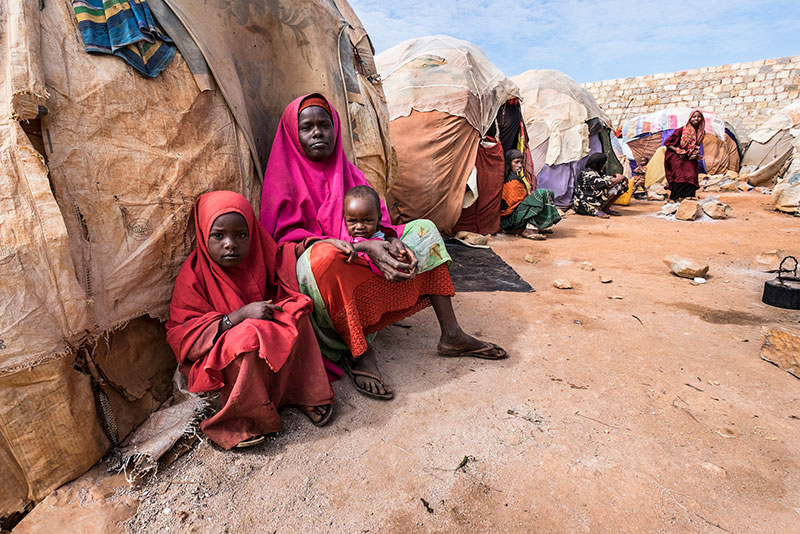Almost a million people sink into food crisis in Somalia, warns UN agency

The humanitarian crisis in Somalia is set to worsen as more people face food shortages owing to below average cereal harvests in crop dependent areas and poor rainfall in pastoral areas, the UN Humanitarian agency, UNOCHA has warned.
In a report released today, UNOCHA Somalia estimates an upwards of 850,000 people face acute food insecurity, a climb from 730,000 six months ago. The report adds that in total 3.1 million people now require food aid in the country calling on humanitarian actors to step in to alleviate suffering.
“The levels of food insecurity and malnutrition are critical. Humanitarian actors and donors have prevented the situation being a lot worse than it is, but we all need to do more”, said Humanitarian Coordinator Peter de Clercq.
IDP crisis
de Clercq said the situation was the more worrying for internally displaced people who account for 68% of the those facing the crisis adding that this is a group already suffering human rights violation. Food insecurity aggravates protection concerns and regularly results in child labour, increased sexual and gender based violations and involuntary family separations, the report said.
UNOCHA also raises red flag on the state of children in Somalia noting that more than 210,000 children under the age of five are acutely malnourished, 40,000 of whom are severely malnourished and face a high risk of disease and death.
The agency has called for concerted efforts to stem the suffering and build on measures already put in place by various humanitarian groups.
“We must continue investing in saving lives. We cannot allow a reversal in the important steps forward made on the humanitarian and development fronts”, said the Humanitarian Coordinator, “We must consolidate what has been achieved”.
El Nino rains
The El Nino rains which are expected between October and December is likely to exacerbate the situation in central and northern Somalia as floods will be experienced Galgadud, Mudug, and Nugaal in Puntland with drought conditions ravaging Somaliland.
The IMF two months ago said Somalia’s economic growth is expected to accelerate to 3.4 percent next year and 4.3 percent in 2017 but the worsening food crisis is likely to slow the growth as donor support is directed to the humanitarian situation.